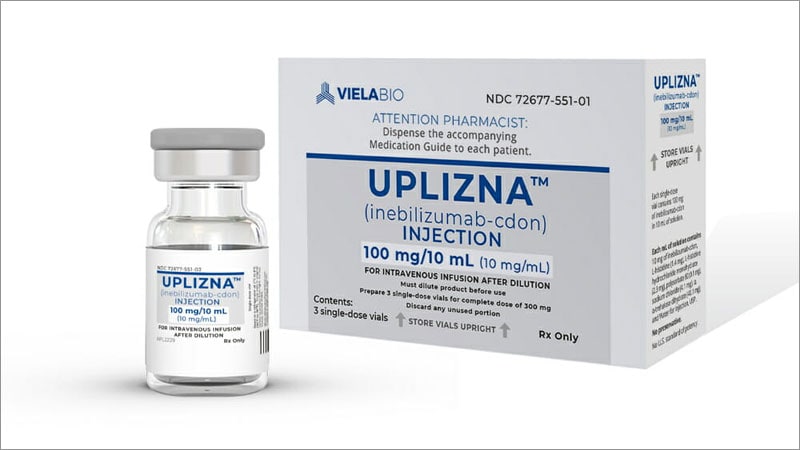The US Food and Drug Administration (FDA) has approved the B-cell depleting agent inebilizumab-cdon (Uplizna, Amgen) for the treatment of immunoglobulin G4-related disease (IgG4-RD).
This is the first and only treatment approved for this rare autoimmune disease in the United States. An estimated 200,000 people in the United States are living with IgG4-RD, according to a press release from Amgen.
“The FDA approval of Uplizna marks a significant turning point for IgG4-RD patients and physicians who now have a proven treatment that targets a key driver of the disease, reducing the risk of flares and reliance on harmful long-term steroid use,” said Jay Bradner, MD, executive vice president of Research and Development at Amgen, in the release. “We are proud to deliver a therapy that has the potential to significantly improve care for patients with IgG4-RD and remain encouraged by Uplizna’s broader potential in other immune-mediated diseases, including neuromyelitis optica spectrum disorder and generalized myasthenia gravis.”
The approval of this CD19+ B-Cell targeted therapy was supported by results from the phase 3, randomized, double-blinded trial MITIGATE. In the trial, patients treated with inebilizumab-cdon had an 87% reduction in the risk of flares compared with the placebo group. The results were published online in the New England Journal of Medicine on November 14 and presented at the American College of Rheumatology Annual Meeting.
Inebilizumab-cdon was previously approved by the FDA for neuromyelitis optica spectrum disorder (NMOSD) in adults who are anti-aquaporin-4 antibody positive, in 2020. It has also been designated as an orphan drug by the FDA for the treatment of generalized myasthenia gravis.
The initial dose of inebilizumab-cdon is 300 mg, administered in an intravenous infusion, followed 2 weeks later by a second 300 mg intravenous infusion. After these two treatments, a single 300 mg intravenous infusion is given every 6 months.
The most common side effects of inebilizumab-cdon in patients treated for IgG4-RD were urinary tract infections and lymphopenia. In the treatment of NMOSD, the most common side effects were urinary tract infections and arthralgia.
The drug is contraindicated in patients with active hepatitis B infection, active or untreated latent tuberculosis, and a previous life-threatening infusion reaction to inebilizumab-cdon.
“Targeting CD19+ B cells with Uplizna has proven to be a highly effective approach to help address the pathophysiology of IgG4-RD,” said John Stone, MD, MPH, principal investigator of the MITIGATE trial, in Amgen’s press release. He is a professor of medicine at Harvard Medical School and the Edward A. Fox Chair in Medicine at the Massachusetts General Hospital in Boston. “The clinical community now has an FDA-approved therapeutic innovation for patients that targets underlying disease mechanisms and helps to control disease activity by reducing flares in IgG4-RD,” he added.
Source link : https://www.medscape.com/viewarticle/fda-approves-first-and-only-therapy-igg4-rd-2025a100087j?src=rss
Author :
Publish date : 2025-04-04 19:00:00
Copyright for syndicated content belongs to the linked Source.
